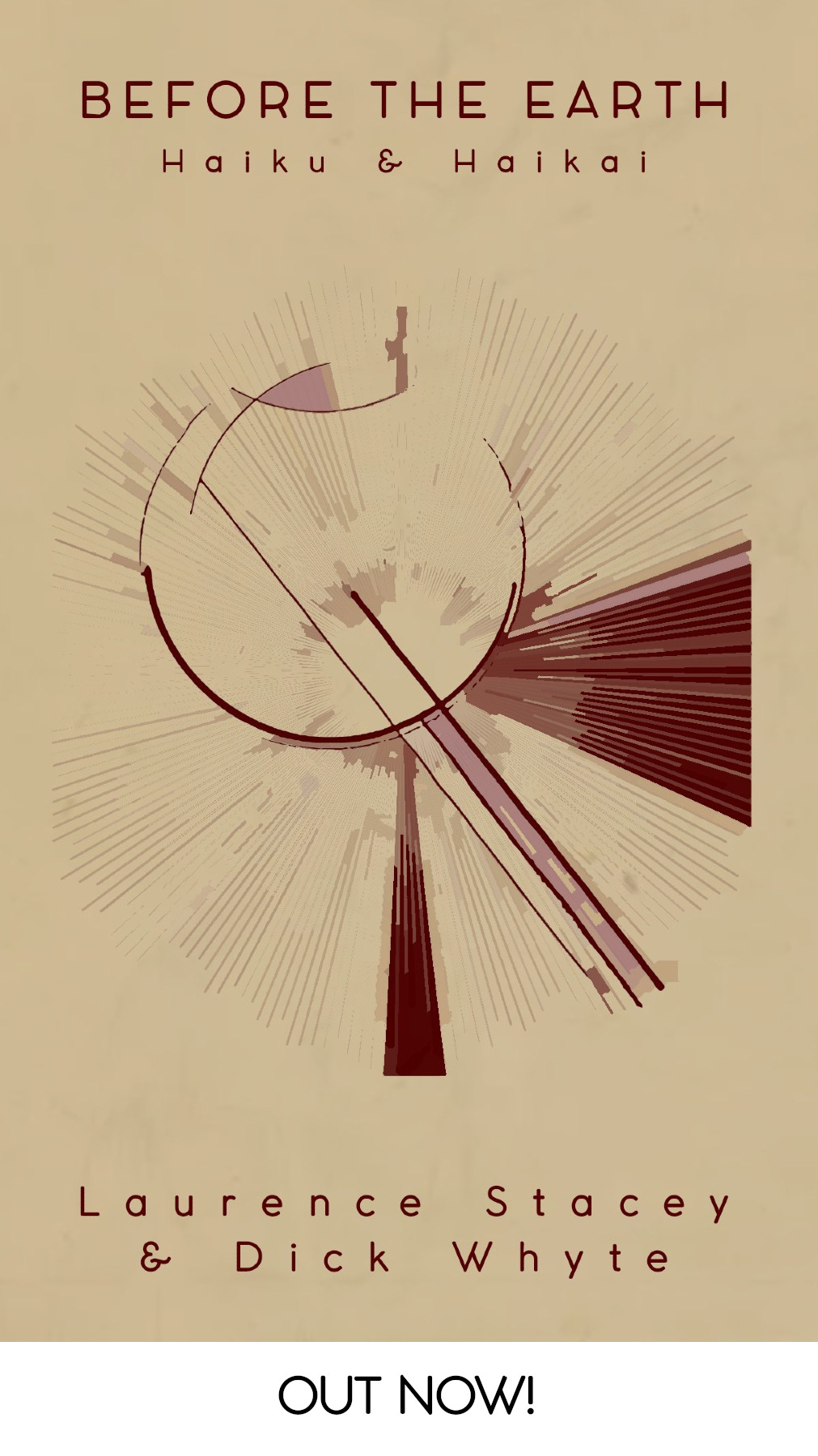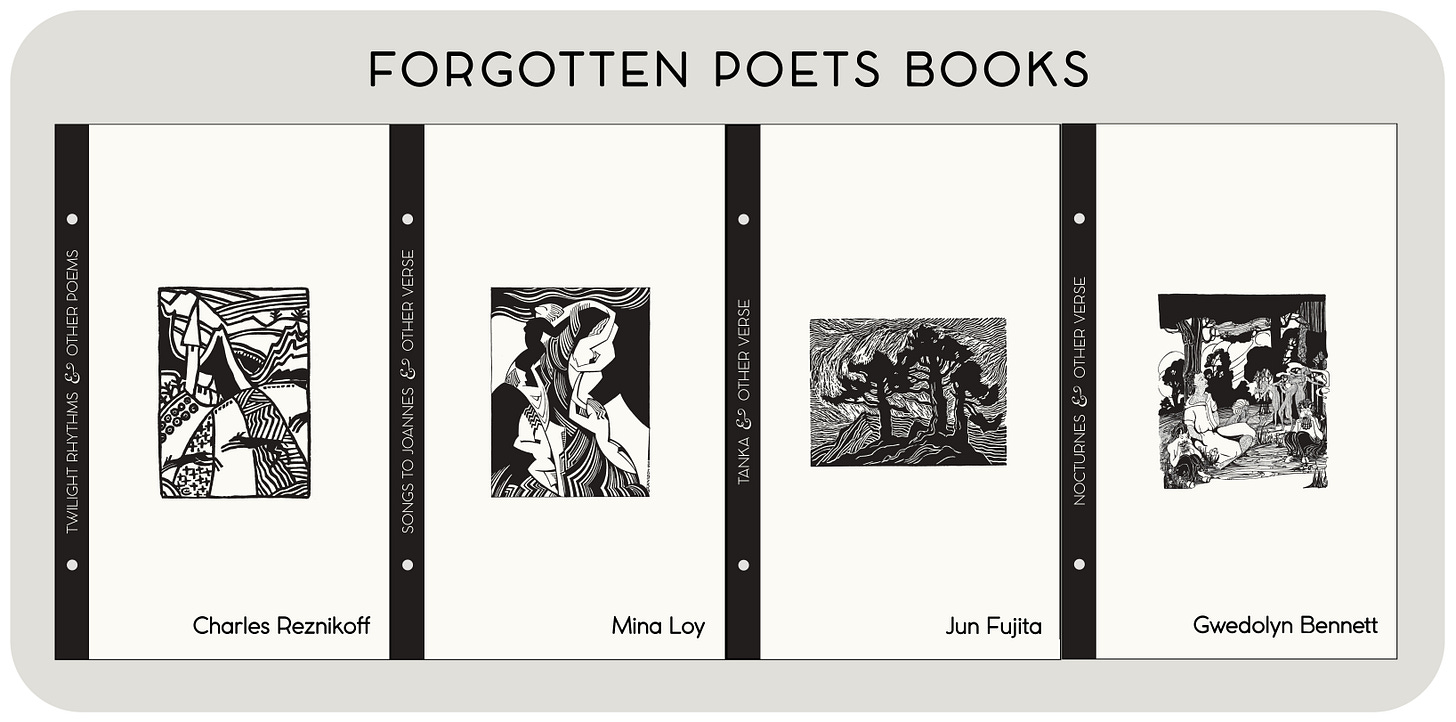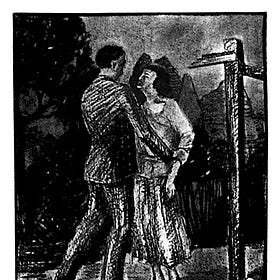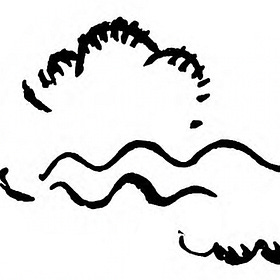—: I :— It is a cold, grey morning, and the wind scarcely moves, and the sun cannot pierce through its covering of grey . . . . The wind wakes up, the trees begin to sway, and the paper in the street below is blown in a circle . . . . then . . . right away . . . .
“This poem danced out is one of the most charming I know. Miss Dillon appears in a short white frock and a green peplum. She recites the poem, at the same time making conventional gestures which at once evoke images of the morning, the wind, the sun, the trees. Then with the lines ‘and the paper in the street below / is blown in a circle . . . / then . . . right away . . .’ she pirouettes two or three times and blows off the stage.” (John Rodker, in The Drama, 1916)
—: II :— Oh! moon, pale thing that shines at night, and casts the long shadows of the trees towards me. They seem to grope like long, black, tapering arms, when they are moved by the wind. Oh! wind, the cooling rush of air, that fans my hair, when you are rough I love you. To be on a hill, with the moon and the wind, the smell of grass and trees, to dabble with the cool dew. Moon . . . . . . . wind . . . . trees, dew, grass . . . and you.
Kathleen Dillon (1898-1990) was born in Croydon, England, and at age 13 became “one of the chief personalities of the famous Margaret Morris School of Dancers.” (The Tatler, Dec. 1919) Went on to co-found the Choric School, previously known as the Clarissa Club, with Hester Sainsbury, another student of Morris, and the poet John Rodker; “Dillon introduced into the performances a modernity and in a sense a strenuousness that till then they had not possessed. By a modernity I mean particularly a spontaneity and an élan… a perfection and simplicity and compactness.” (Rodker, The Drama, 1916)
“I could not make much of [their] cadence until one evening… Miss Sainsbury and her company, including Miss Dillon, came in at the end of the hall and danced out their poems. I then understood the curious breaks and pauses, the elaborate system of dots and dashes with which this new group is wont to adorn its verses… Remembering how great an effect… dance songs… have had on our European metric and poesy, I was at once interested and excited by the possibility which their work has, a possibility of reanimating our verse… Many hold that poetry was associated with dancing before people tried to wed words with music. At any rate the dance basis is fundamental in much early poetry.” (Ezra Pound, ‘Forward to the Choric School’, Others, 1915)
Painting of Dillon by Augustus John (Land & Water, 1918).
—: After Kathleen Dillon :— by Dick Whyte why dance like no-one's watching when we can dance together? eyes everywhere but in the sky
Forgotten Poets Presents:
Forgotten Poems, a living anthology of obscure and out-of-print poetry from the late-1800s and early-1900s. Explore the archives:
More poems about dancing . . .
Pauline Cahn - 2 Short Poems (1918-22)
—: Rest :— I am so tired—so tired. I see too many people, Read too many books. Do too many things. I hate the theaters, I hate my work, I want you,—only you . . . . Come to me between the cool sheets...
More poems about the moon . . .
Gwendolyn B. Bennett - 6 Short Poems (1923-26)
—: Quatrain :— How strange that grass should sing— Grass is so still a thing . . . And strange the swift surprise of snow,— So soft it falls and slow...
Margaret Tod Ritter - 5 Very Short Poems (1925-28)
—: Dedication :— And there were mirrors in every room: Full length; no bigger than the hand. Each one was set about with precious stones...
Alice Dunbar Nelson - 5 Short Poems (1895-1929)
—: If I Had Known (1895) :— If I had known Two years ago how drear this life should be, And crowd upon itself all strangely sad, Mayhap another song would burst from out my lips...
















Oh I love this posting! Beautiful poems and delightful image in my mind watching her twirl. Thank you for introducing me to these poems.
# 2 is my favorite, especially these lines.
Oh! wind,
the cooling rush of air,
that fans my hair,
when you are rough
I love you.
I also like the concept of dancing to poetry.